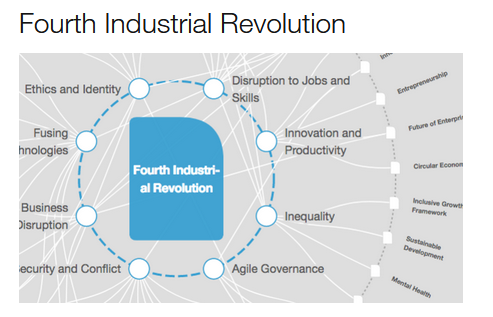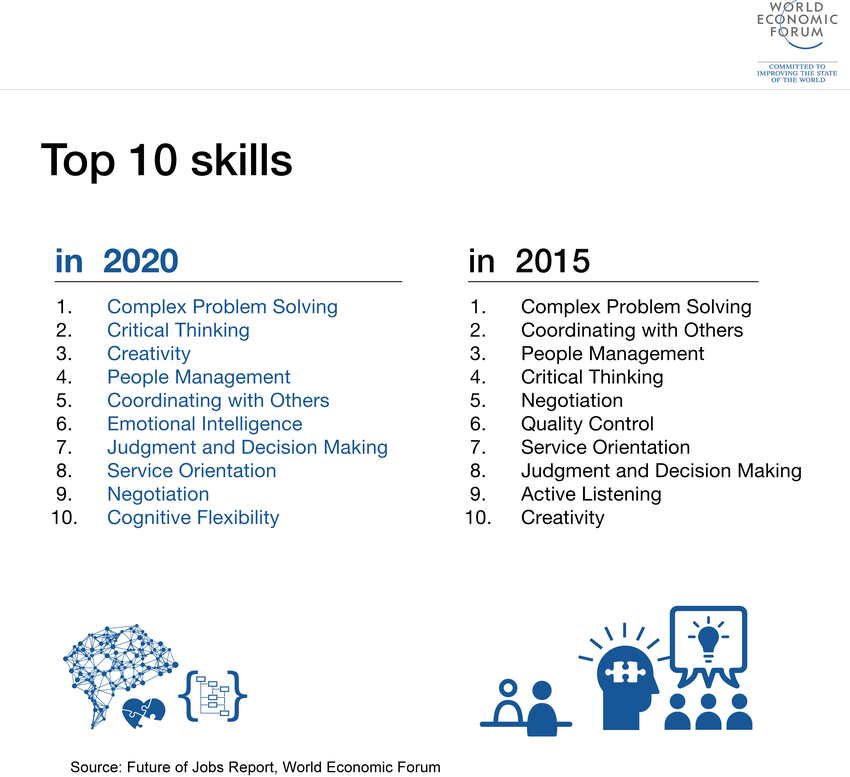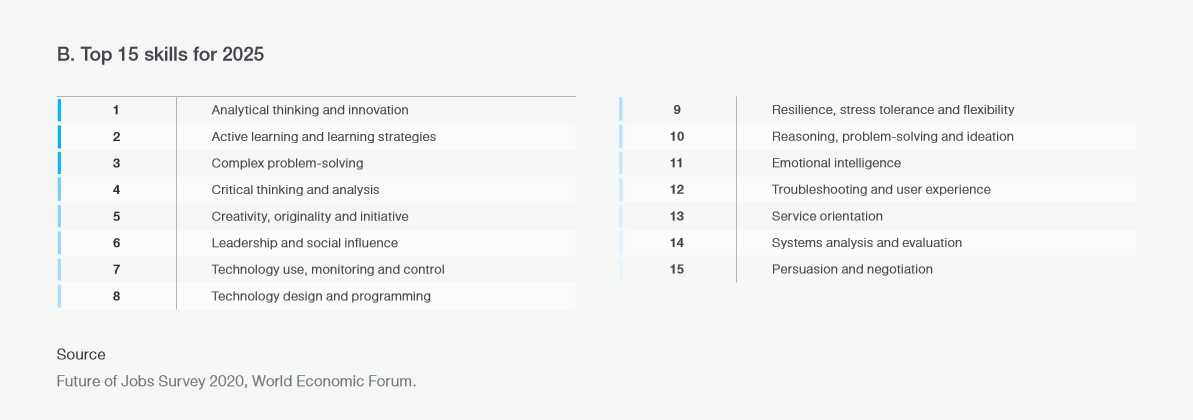
By Harry Vardis
Steve Jobs in his commencement address at Stamford University in 2005 spoke on “Connecting the dots”. He mentions that to connect the dots you must look back. We take the perspective that you can also look ahead and plan for what patterns the dots are showing.
You can listen to Steve’s speech in YouTube https://news.stanford.edu/2005/06/14/jobs-061505/
In 2015 an article based on information provided by the World Economic Forum and written by Alex Gray, Senior Writer, Formative Content, painted a picture of change based on what is called The Fourth Industrial Revolution. https://www.weforum.org/agenda/2016/01/the-10-skills-you-need-to-thrive-in-the-fourth-industrial-revolution/

The points made might be called earth shuttering given that the fourth industrial revolution would take out of the human hands tasks attributed to humans until then and passing them on to machines and robots.
The article stated that the top skills in the global market that would move in the top three positions by 2020 would be:
- Complex or creative problem solving
- Critical thinking, and
- Creativity
Why these skills?
Creativity will become one of the top three skills workers will need. With the avalanche of new products, new technologies and new ways of working, workers are going to have to become more creative in order to benefit from these changes.
Whereas negotiation and flexibility are high on the list of skills for 2015, in 2020 they will begin to drop from the top 10 as machines, using masses of data, begin to make our decisions for us.
A survey done by the World Economic Forum’s Global Agenda Council on the Future of Software and Society shows people expect artificial intelligence machines to be part of a company’s board of directors by 2026.
Disruption in industry
The nature of the change will depend very much on the industry itself. Global media and entertainment, for example, has already seen a great deal of change in the past five years.
The financial services and investment sector, however, has yet to be radically transformed. Those working in sales and manufacturing will need new skills, such as technological literacy.
Change won’t wait for us: business leaders, educators and governments all need to be proactive in up-skilling and retraining people so everyone can benefit from the Fourth Industrial Revolution.

Notice that all of that was before COVID hit the globe and accelerated the changes to the point of paralysis in some sectors like Hospitality, Education, Transportation and several others critical to the global economy.
And now let us look at the most recent World Economic Forum report that accelerates these projections even more. For a full view go to http://www3.weforum.org/docs/WEF_Future_of_Jobs_2020.pdf
Since its 2016 edition, the WEF report has tracked the cross-functional skills which are in increasing demand.
Figure 27 below, shows the top skills and skill groups which employers see as rising in prominence in the lead up to 2025. These include groups such as critical thinking and analysis as well as problem-solving, which have stayed at the top of the agenda with year-on-year consistency.

Table B below shows “Newly emerging this year are skills in self-management such as active learning, resilience, stress tolerance and flexibility. In addition, the data available through metrics partnerships with LinkedIn and Coursera allow us to track with unprecedented granularity the types of specialized skills needed for the jobs of tomorrow” says the report.

Figure 28 demonstrates the set of skills which are in demand across multiple emerging professions. Among these ‘cross-cutting’ skills are specialized skills in Product Marketing, Digital Marketing and Human Computer Interaction

Net-net
The WEF reports of 2015 and 2020 lay out an interesting pattern of dots to connect at least for now and these points might accelerate even more after COVID is gone.
- Lifelong learning is a must for future job careers. This is even more critical when it comes to technology, computing, mathematics and all related sciences and all the humanity sciences from the most basic skills to the most advanced.
- Problem solving in all its forms utilizing creativity, critical skills, analytical skills and adapting skills will be a must for those who want to move ahead in their careers.
- As the two waves of technology skills and human skills collide there will be needs for coaching, understanding and practicing the tools and techniques of both sides of these storms.
- Companies will want to hire employees who are adept in both areas of technology and human sciences and colleges and universities will need to rethink their curricula to accommodate both with new certificates indicating training and expertise in both areas.
- The new questions that everyone needs to be asking is
- “Can artificial intelligence, known as AI, or a robot take over my job?”
- If yes, then what should I do next?
- If no, how much longer will this job be available to humans?”
- If knowledge, timing and adaptation are the new job parameters, how should we plan our careers?
- And finally, is it possible that creative thinking is the ultimate brainpower to lead us ahead in our careers?
- “Can artificial intelligence, known as AI, or a robot take over my job?”
I welcome your thoughts and if you are up to it let’s start a discussion on these topics.
Many thanks,
Harry
